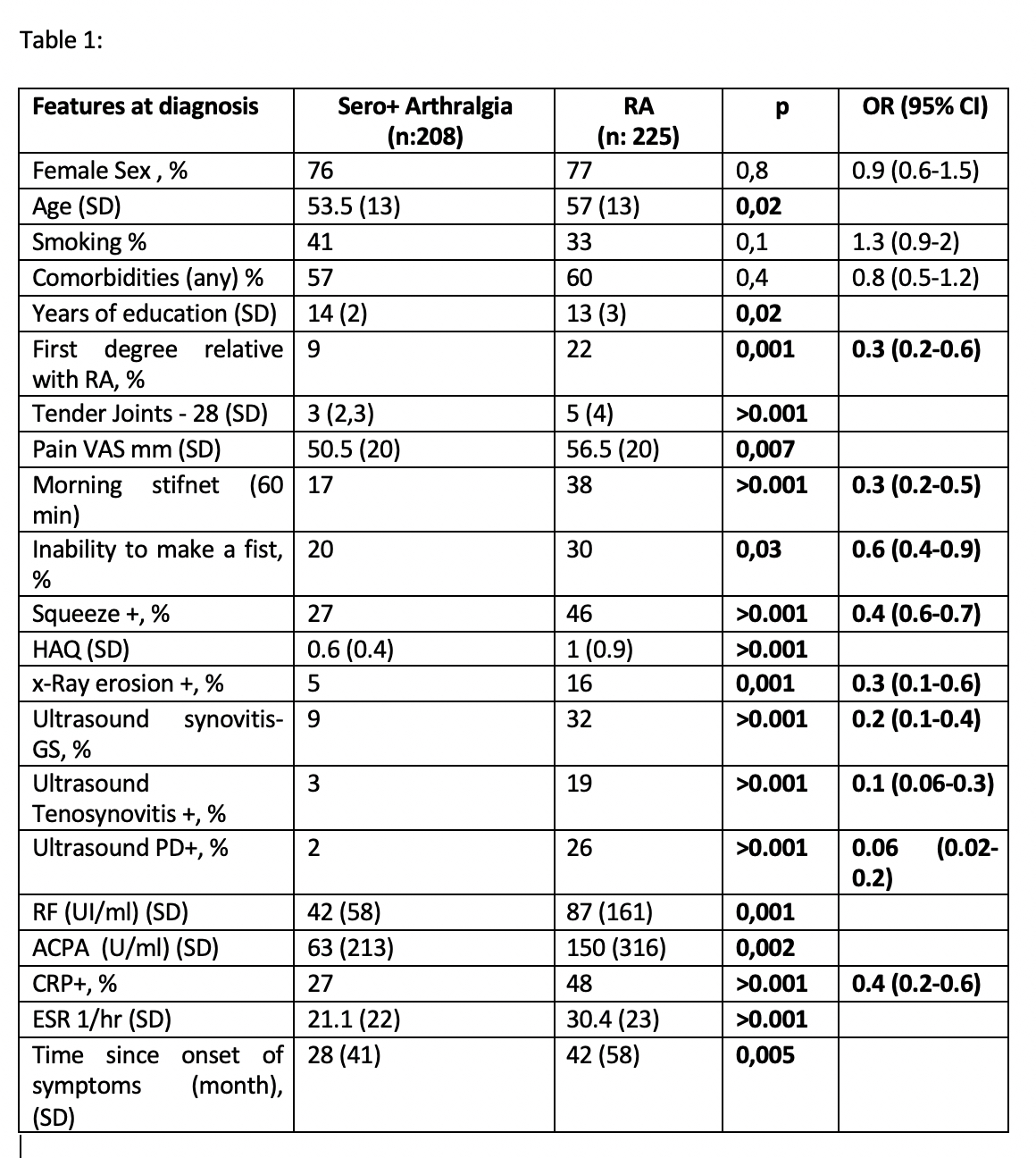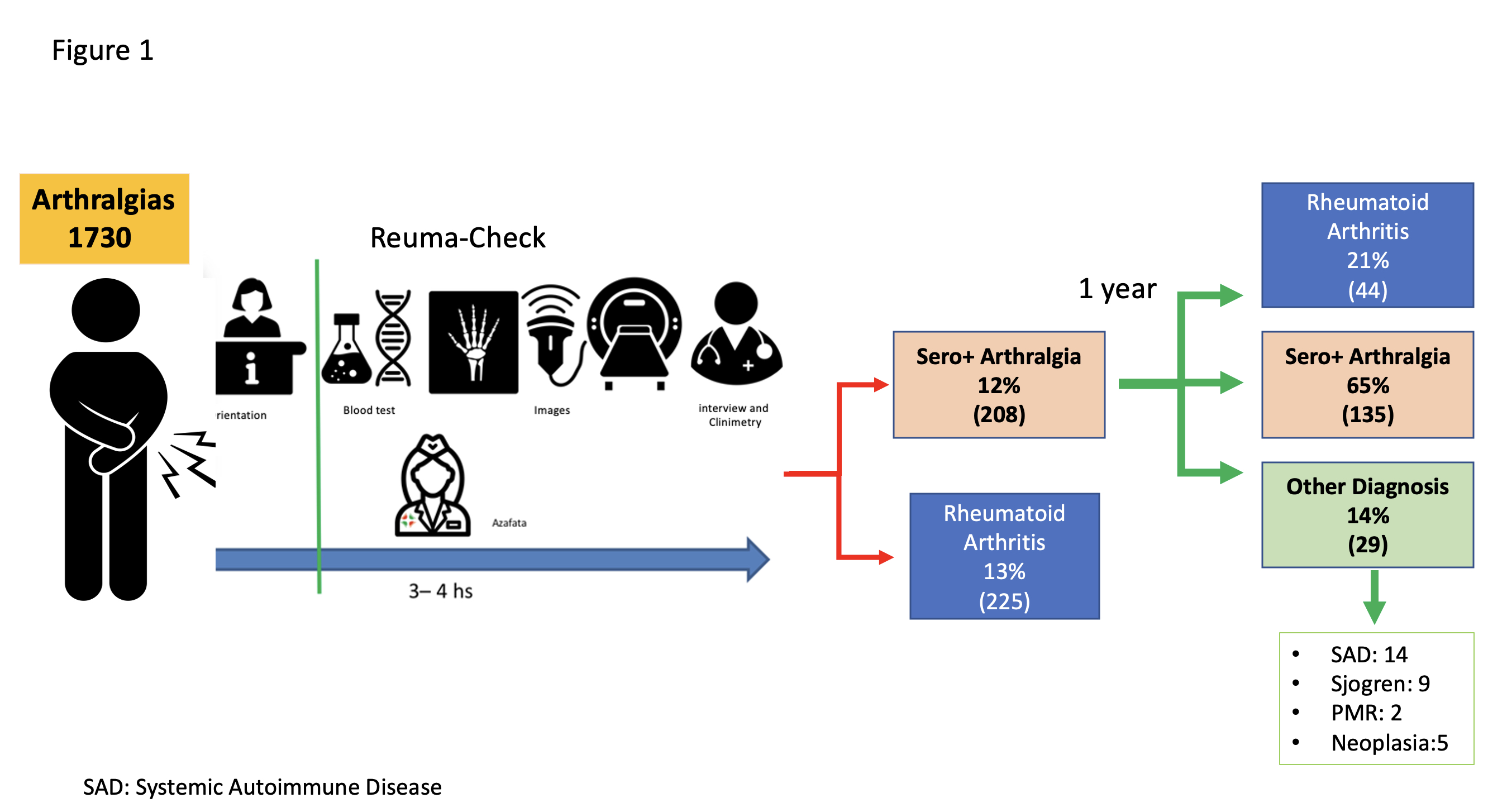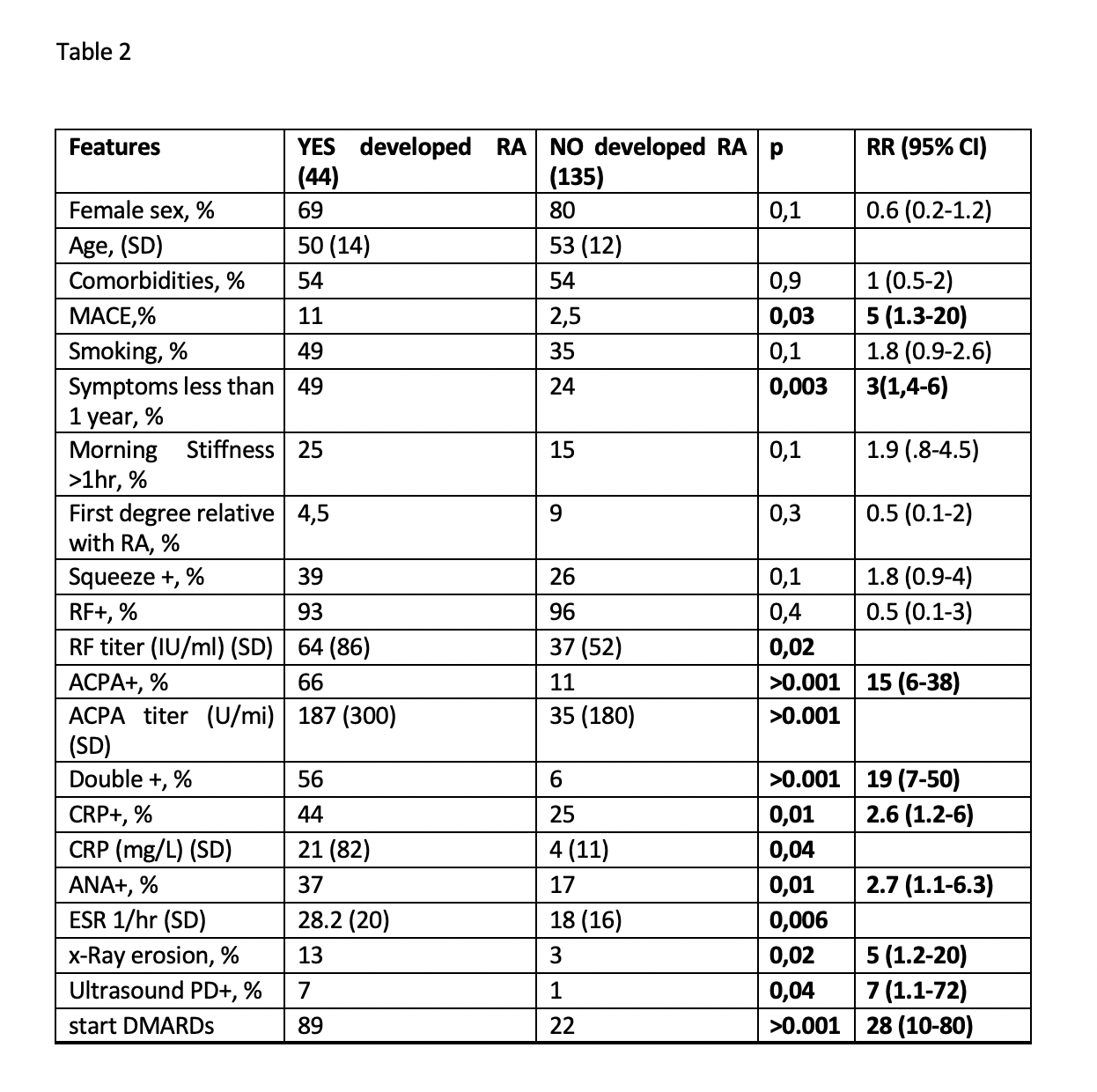Session Information
Session Type: Poster Session C
Session Time: 10:30AM-12:30PM
Background/Purpose: To estimate the frequency of seropositive arthralgia (SA) in a large cohort of patients evaluated for arthralgia in Reuma-check program. To compare the features of SA and RA diagnosed with the same procedures. To evaluate the therapeutic approach in SA. Finally analyses the incident RA cases during follow-up (1 year) of SA and the predictive factors.
Methods: Observational study where patients with arthralgia are admitted to the Reuma-check program in which: at baseline, laboratory tests (ESR, CRP, RF and ACPA), Ultrasonography (US) and X-ray were performed. Sociodemographic, clinical and clinimetry data (28 joints count – HAQ) were also collected. Each evaluator was blinded to the data of the other studies. Once the circuit is completed, the diagnosis of SA (arthralgia + positive RF and/or ACPA) or RA is established. In a first (cross-sectional) analysis, the frequency of SA and RA was estimated and a comparison was made with descriptive statistics and logistic regression. In the follow-up of SA patients (prospective), the therapeutic approach, incident cases of AR and other diagnoses related to seropositivity were evaluated. Predictive factors were analyzed between patients who developed AR at follow-up vs those who did not.
Results: A total of 1730 patients were evaluated: Females: 77%, age 52 years (SD14). The frequency of SA was 12% (95% CI: 11-14) (serostatus: RF: 94% – ACPA: 21%, both: 17%) and RA was 13% (95% CI: 11-15). The relevant and statistically significant differential characteristics are shown in Table 1. The features that were independently associated with SA vs RA were: Morning stiffness (OR: 0.3 95% CI: 0.2-0.9), painful joints (OR: 0.3 95% CI: 0.2-0.9), ACPA+ (OR: 0.7 95% CI: 0.65-0 .9), US+PD (OR: 0.03 95% CI: 0.004-0.3).
At one year of follow-up of SA, 21% developed RA (95% CI: 16-27), 14% another disease related to seropositivity, and 65% continued as SA. (flow chart: figure 1). The mean time from SA to the diagnosis of RA was 7.3 months (SD 6). The frequency of treatments with DMARDs in SA was 40% (MTX: 60% – HCQ: 34%) The time (month) to start DMARDs was 2.2 (SD 1.9). Regarding the analyze between the SA that developed RA and those that did not, the table 2 shows the relevant differential characteristics (baseline evaluation). In the multivariate analysis as a predictive variable to develop RA only: ACPA+ was found (OR : 7.7 95% CI: 1.2-60).
Conclusion: In our arthralgia cohort 12% were SA and differential characteristics were found with respect to RA diagnosed. Of these SA, 40% received treatment with DMARDs. 21% developed RA after one year with differential characteristics compared to those who did not develop RA. the ACPAs were the only predictive factor.
To cite this abstract in AMA style:
Garcia Salinas R, Almada F, Reyes-Jara G, Perez-Andocillas R, Magri S. Seropositive Arthralgias: A Comprehensive Analysis of the Reuma-Check Cohort [abstract]. Arthritis Rheumatol. 2024; 76 (suppl 9). https://acrabstracts.org/abstract/seropositive-arthralgias-a-comprehensive-analysis-of-the-reuma-check-cohort/. Accessed .« Back to ACR Convergence 2024
ACR Meeting Abstracts - https://acrabstracts.org/abstract/seropositive-arthralgias-a-comprehensive-analysis-of-the-reuma-check-cohort/



